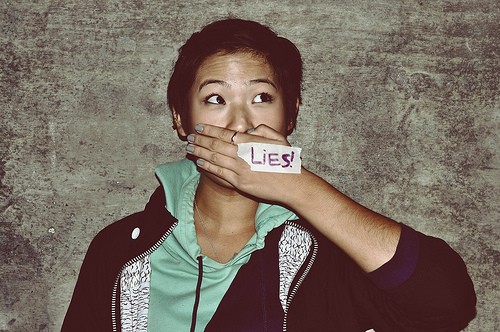
The small, harmless lies parents often tell their little ones may have a greater impact on the child, than what was originally thought to be.
A new study from the University of California, San Diego found that lying to a child can cause severe damages to his/her honesty. In the study, children who were lied to by an adult lied and cheated more than the children who were not exposed to lies.
Nearly 186 children, aged between three and seven, took part in the study. At the beginning of the study, the experimenter told 143 children that a huge bowl of candy was awaiting them in the next room, shortly revealing to them that it was a trick to lure them to play a game. The rest of the children were asked to take part in games, without offering the candies.
The game involved identifying certain character toys by listening to their sounds. During the games, the experimenter left children alone in the room for 90 seconds, pretending to attend a phone call. While leaving the room, the children were particularly warned against peeking at the mysterious toy that was making the sound.
Nearly 80 percent of the children (aged between five and seven) who had been lied to by the experimenter peeked at the tricky temptation toy, while 90 percent of them even hid the fact that they did so, compared to the children who were not lied to at the beginning of the experiment.
Though the study could not underline the factors that led to this occurrence, researchers cited three possibilities: the tendency of a child to imitate adult behaviour, the child's attempt to make certain judgments about the importance of honesty to the experimenter, or the child may not be feeling the necessity to tell truth to a person who is already a liar in their eyes.
Concerned with their findings, Leslie Carver and her student Chelsea Hays urged parents to be more careful while handling their little ones.
"The actions of parents suggest that they do not believe that the lies they tell their children will impact the child's own honesty. The current study casts doubt on that belief," the authors wrote, according to a news release.
"All sorts of grown-ups may have to re-examine what they say to kids. Even a 'little white lie' might have consequences," Carver added.
Findings of the study have been published in Developmental Science.









